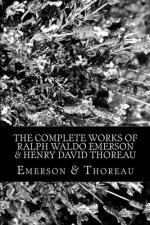|
This section contains 4,112 words (approx. 14 pages at 300 words per page) |

|
SOURCE: “Emerson and Nature,” in The Cambridge Companion to Ralph Waldo Emerson, edited by Joel Porte and Saundra Morris, Cambridge University Press, 1999, pp. 97-105.
In the following essay, Richardson defines Emerson's perception of nature and the role it played in his philosophical thinking and writing.
Explicit or implicit in nearly everything Emerson wrote is the conviction that nature bats last, that nature is the law, the final word, the supreme court. Others have believed—still believe—that the determining force in our lives is grace, or that it is the state—the polis, the community—or that it is the past. More recently it has been argued that the central force is economics or race or sex or genetics. Emerson's basic teaching is that the fundamental context of our lives is nature.
Emerson's definition of nature is a broad one. Nature is the way things are. Philosophically, Emerson...
|
This section contains 4,112 words (approx. 14 pages at 300 words per page) |

|


